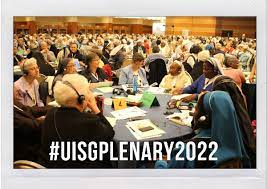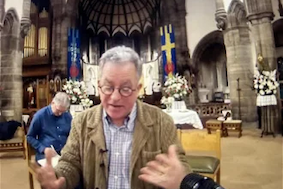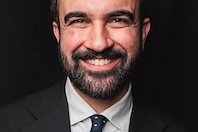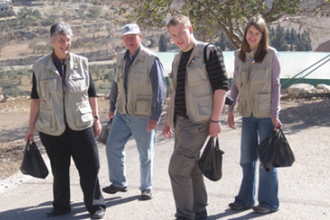Vulnerability and synodality: 2022 UISG Plenary Assembly

Source: IUSG/Vatican Media
The Plenary Assembly of the International Union of Superiors General was held in Rome from May 2-6 on the theme "Embracing Vulnerability on the Synodal Path" with the participation of over 700 Superiors General.
The Assembly focused on the contributions they can bring to the synodal process, particularly given their "vulnerability" with declining numbers in most places and their lack of power and status.
Described as a space for growth, learning and sharing for all the participants, the Assembly was an important time of deep listening with numerous interventions and testimonies such as that of Sr Carmen Mora Sena, hcsa, who brought the experience of pain of the pandemic that for two years now has been a challenge of vulnerability for all humanity "the experiences I have lived have led me to discover that vulnerability makes synodality possible, since it allows us to recognise in a palpable way how much we need to walk together".
Presenting the meeting at a press conference, Franca Zonta, Superior General of the Marianist Sisters, said: "Our journey together is born precisely from the desire to witness to the communion between the different charisms".
"There's a huge amount of energy in religious life, both from the men and the women, and a tremendous investment in the synodal process," said Sr Gemma Simmonds, a member of the Congregation of Jesus, who is one of four religious charged with synthesizing contributions from hundreds of religious communities for a joint contribution to the Synod of Bishops from both the women's and men's international unions of superiors.
Sr Gemma, who is director of the Religious Life Institute at the Margaret Beaufort Institute of Theology in Cambridge, said: "Some of the responses point out that of course, synodality is part and parcel of religious life," For instance, she said, the Rule of St Benedict allows an abbot or abbess and his or her council to make decisions on unimportant matters, but requires them to consult the whole community, including the youngest monks or nuns, on anything important.
They also model for the whole church a life animated by personal and communal prayer; living and working in a group of people of different ages and from different cultural backgrounds; constant collaboration with bishops, priests and laypeople in carrying out their mission; outreach to the poor and those on the margins of society; and, increasingly, joint projects with other religious congregations that may have vastly different charisms.
The report It's High Time commissioned in 2020 by the Women's Executive of the Conference of Religious India raises issues of the struggle of some sisters to achieve justice from clerical authorities who abuse their power by depriving religious women of just wages, land or simple respect as co-workers in the pastoral field, where they often do the 'heavy lifting' in terms of work, but are airbrushed out of the picture in terms of recognition.
The study also reports problems with bishops deciding to close schools, hospitals or other institutions without consulting the sisters who had operated them for decades, and even bishops or priests using "access to the sacraments" to force sisters into accepting their decisions.
"This is a grotesque injustice that should not be tolerated among the people of God," said Sister Gemma, " but while the submissions to the synod were honest, they did not focus exclusively on problems".
"What also came across is the appreciation of how powerful it is when religious do collaborative work with laypeople, with clergy, with bishops," she said. "It is there over and over again, the evidence that this works; it's good. It's good for the people. It's good for the mission. It's good for the church. What's not to like?"
The responses make clear that charisms given by God to the founders of religious orders and shared with their members for decades or centuries can remain alive and active in the church by sharing them with others, she said. Through the religious and the laity who share their spirituality, "Benedict and Francis and Mary Ward and Louise de Marillac are still alive in the world."
LINKS
Read more about the plenary sessions here: www.uisg.org/it/news
To read It's High Time click HERE


















